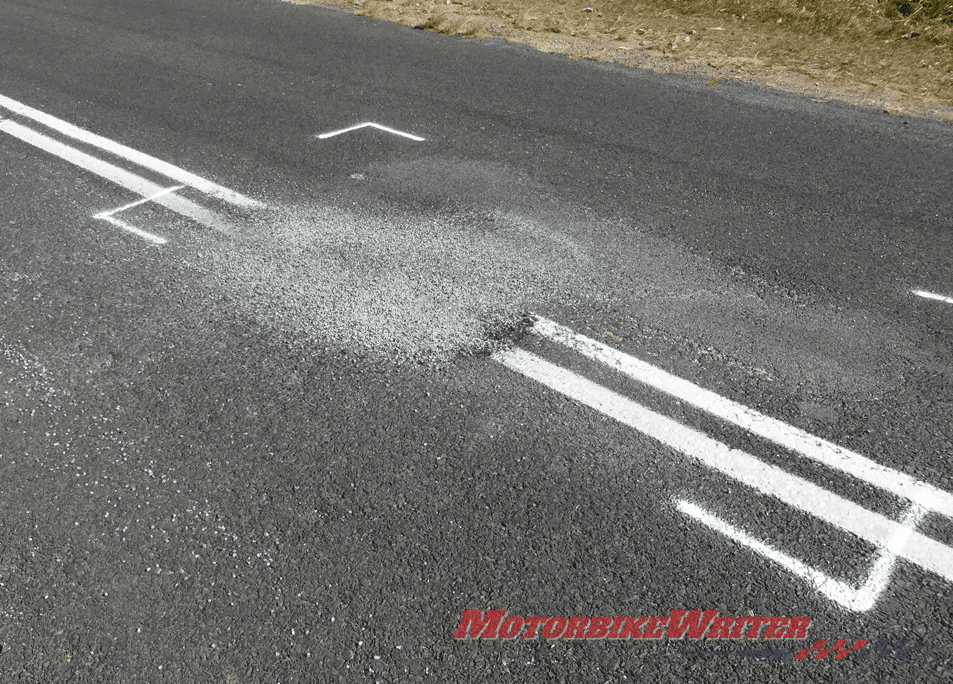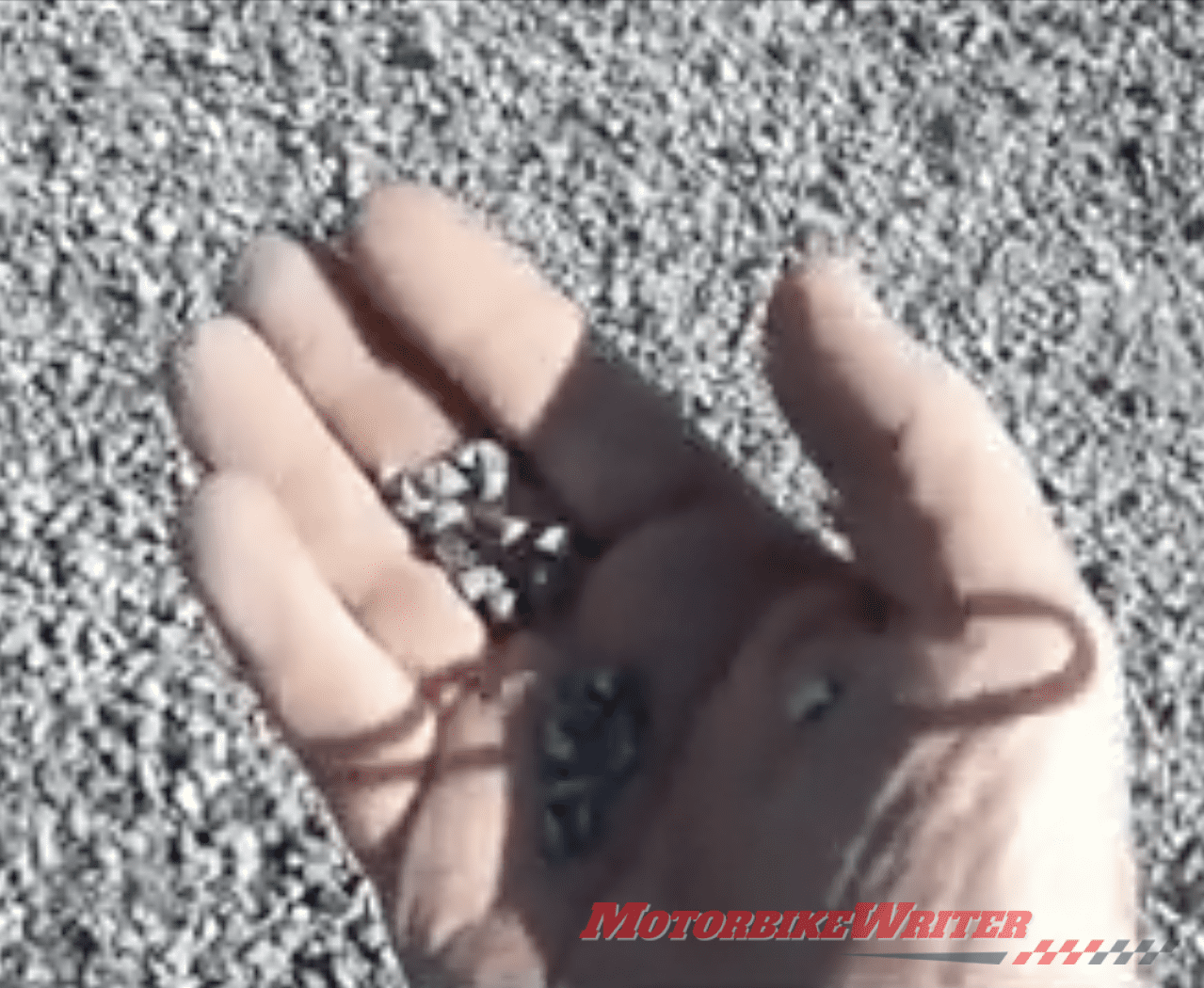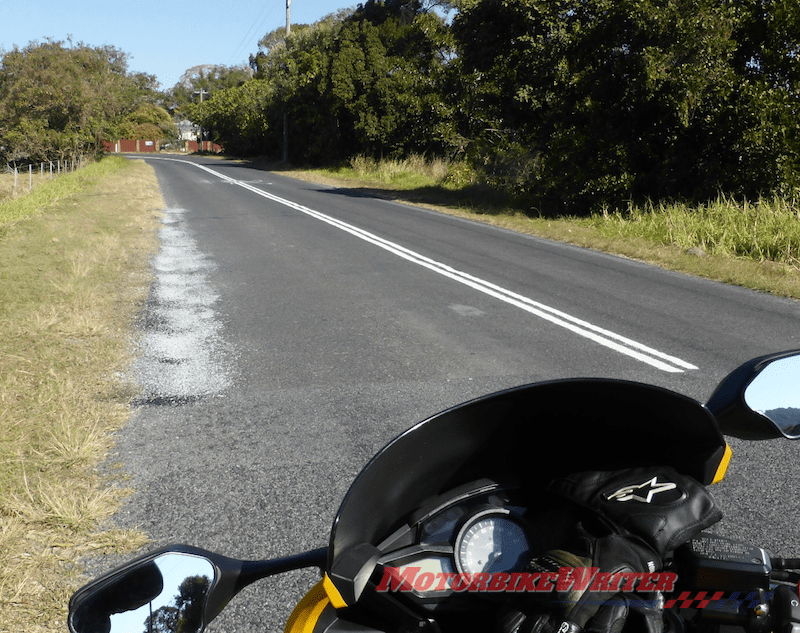A pothole repair program being carried out throughout NSW, and possibly other states, could be a danger to riders, says the NSW Motorcycle Council president Steve Pearce.
His warning follows recent reports from riders of crashes in potholes fixed by a new process that leaves ball-bearing-sized gravel on the surface.
So far, the potholes have been identified in the Byron, Wooing and Tomewin areas.

Duty of care
Steve says councils have a duty of care to all road users in their pothole repair.
“Leaving loose material on the road is a hazard to motorcyclists which is totally unacceptable,” he says.
“I am calling for all councils to ensure their road repair contractors understand the risk caused by this practice and act quickly before someone is fatally injured.
“Also a call out for riders to watch out for repairs and exercise caution where repairs have been done. And of course let MCC know where these hazards are located so we can act.”
The repairs are being carried out by local councils using Flocon trucks which are sold throughout Australia.
Flocon GM Rory Knight says they are “sorry to hear about these incidents”.
“These may or may not be Flocon units. Unfortunately we only manufacture these road maintenance units for local government and councils we do not operate only supply,” he says.
We contacted councils for their comment and received no reply.
A NSW Roads and Maritime Services spokeswoman says they did not carry out these repairs.
“Jetpack (Flocon) repair trucks are not used by Roads and Maritime in the Sydney metropolitan region to carry out asphalt and concrete road surface repairs,” she says.
“The trucks have been used on bitumen surfaces for minor and temporary repairs in rural and regional NSW.
“These repairs involve applying heated bitumen to potholes with aggregate laid across the surface to prevent bitumen from adhering to the tyres of vehicles.
“This aggregate may initially appear loose across the road surface but will either form part of the roadway or be swept to the roadside by the movement of traffic within 24 to 48 hours after the repair is completed.”
Pothole repairs program
In the case of Byron Shire Council, the trucks are on a six-week intensive patching program to fix potholes caused by road surfaces drying out and breaking up in the current drought conditions.
Gold Coast rider Steve McMillan says he almost crashed in a pothole repair at Wooyung and heard of a couple who crashed their Harley in a slippery patch in the middle of a corner near Byron Bay.

“I have hit the exact same type of repair on a left-hand bend near Wooyung NSW which sent me across on to the wrong side of the road and into the gravel and a slow crash into soft shoulder fortunately with only minor damage,” he says.
“Let’s be honest if there was a car coming the other way when I slid across the centre line, well we all know the answer to that scenario.”
He says no attempt was made to sweep away the loose ball-bearing-sized blue metal stones.

It’s called “cracker dust” or decomposed granite and is commonly used as a base under artificial lawn, pathways and driveways.
“Notice it is to be used under, not on top of the road and left there to kill motorcycle riders,” says Steve.
“Where the heck is the duty of care from the repair contractors?”
While all riders should ride to the conditions and be on the lookout for hazards, riders’ lives are at risk when roadworks are not completed to a proper standard.
We have seen far too many crashes in roadworks. Read some of the articles listed below.


